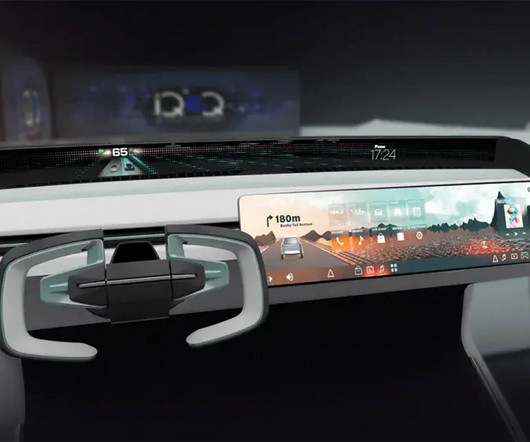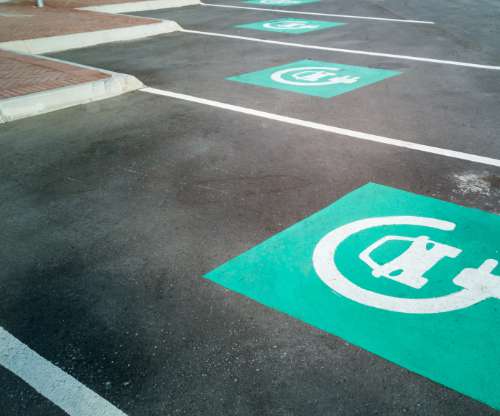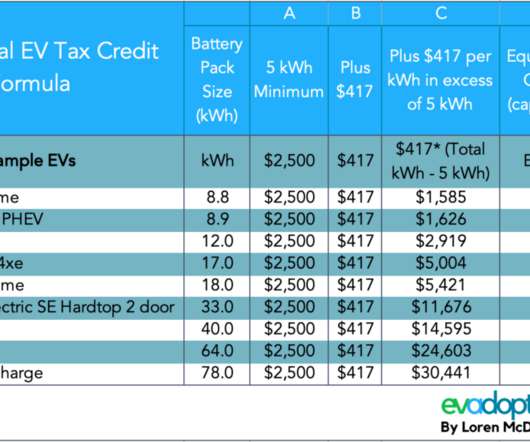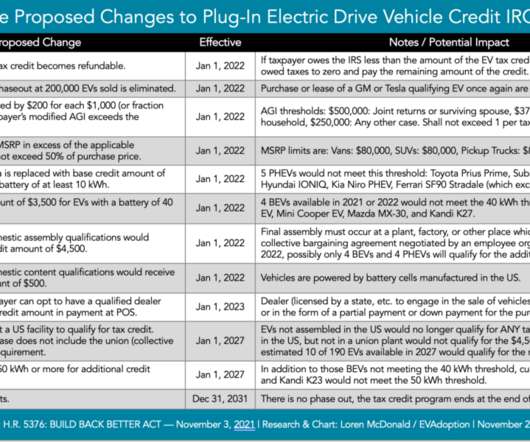Hybrid vs PHEV vs EV | Types of EVs Explained
Setec Powerr
DECEMBER 6, 2022
For example, what is a hybrid vehicle, PHEV, or EV, and what are the differences between them and their advantages and disadvantages? And hybrid electric vehicles do not need to be recharged; the batteries are automatically charged as the vehicle is driven through processes such as braking. More expensive to buy.


























Let's personalize your content